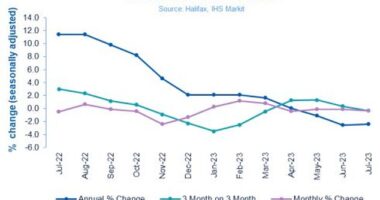
Why do men trade too much? Professors Barber and Odean chalked it up to overconfidence. And where does overconfidence come from? William J. Bernstein, a neurologist who turned his attention to investing years ago, points to testosterone.
The hormone causes three problems for investors: It decreases fear, increases greed and very much contributes to overconfidence. “It does wonderful things for muscle mass and reflex time but doesn’t do much for judgment,” he said.
Sept. 2, 2021, 4:54 p.m. ET
If you fear too little, you’re more likely to get hit hard when markets fall, since you’ll have too much money in the wrong kinds of investments. Similarly, too much greed can lead to too much risk. As for overconfidence, Mr. Bernstein, who is the author of books, including “The Investor’s Manifesto,” suggests a self-administered test question: How certain am I of what I’m doing? “In finance, if you’re certain of anything, you’re out of your mind,” he said.
Women, meanwhile, probably aren’t as confident as they should be. Fidelity’s evidence on this topic is downright depressing: In 2017, one of its surveys showed that just 9 percent of women thought that they would outperform men as investors. This year, only 14 percent of women said they knew a lot about saving and investing and 33 percent felt confident making investment decisions.
How did we get here? Some of the answers are obvious, for women who are married to men at least: For a long time, many husbands simply wouldn’t let their wives have anything to do with investing, whether because the men felt entitled to have control as they were the sole or primary earners or because they had an undeserved conviction that they were better suited for the task. It’s hard to gain confidence with no experience.
To even attempt to invest is to make choices in the absence of complete information. But this can be hard for women, said Manisha Thakor, a financial planner and founder of MoneyZen, a consultant in Portland, Ore. “Women are socialized to be perfect, to know everything before we take a step,” she said, pointing to a TED Talk that Reshma Saujani, founder of Girls Who Code, gave on the topic. “Men are more comfortable making decisions without knowing everything,” she added.
Ms. Kapusta of Fidelity also places some of the blame for underconfidence on the way that the financial services industry has talked about itself. “It’s jargon,” she said. “Alpha. Beta. Even the way new solutions are named. Roboadviser. What’s a roboadviser?”
Source: | This article originally belongs to Nytimes.com









